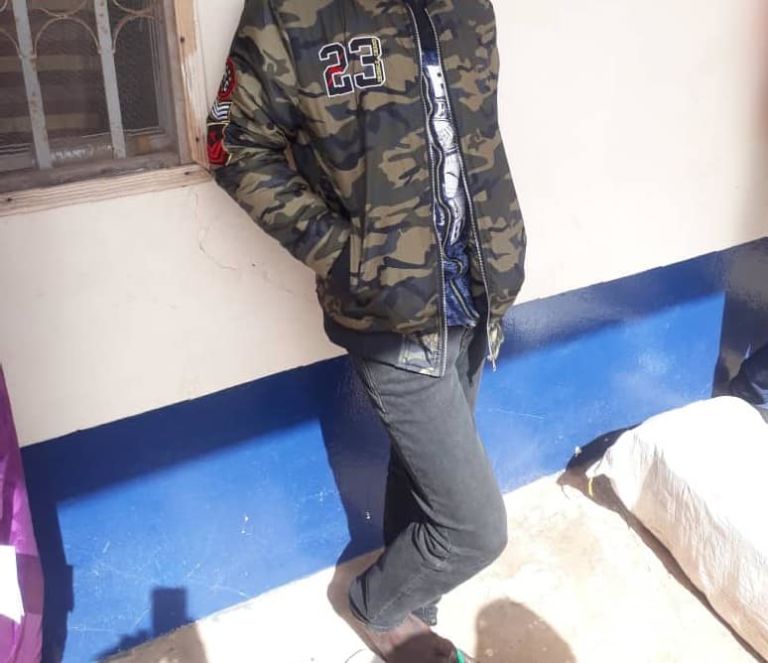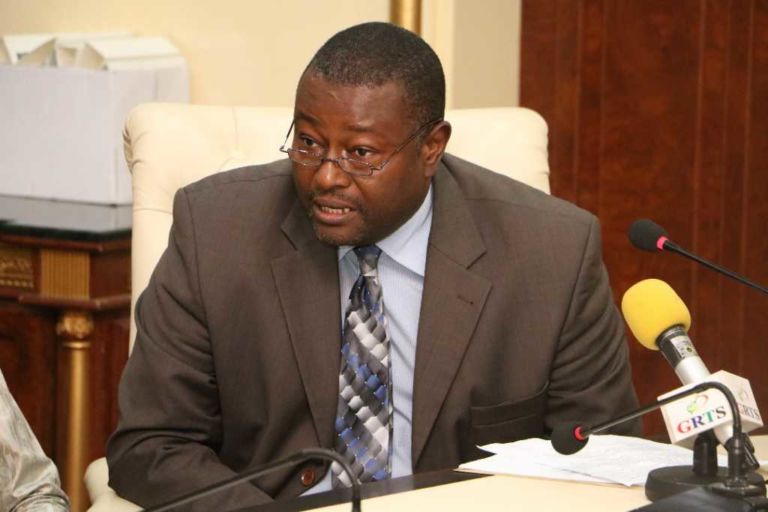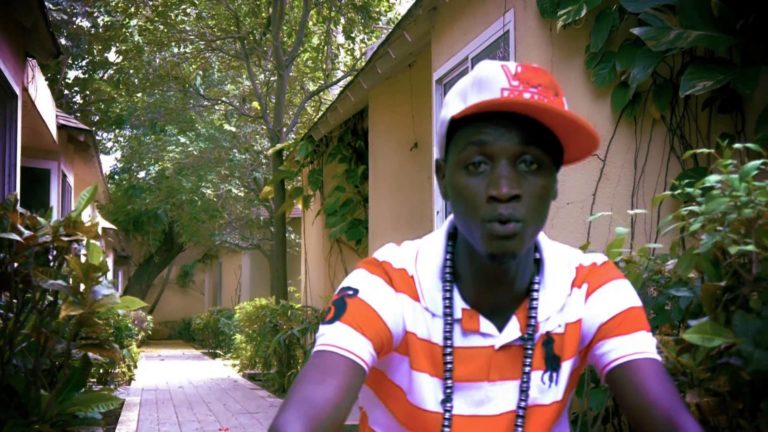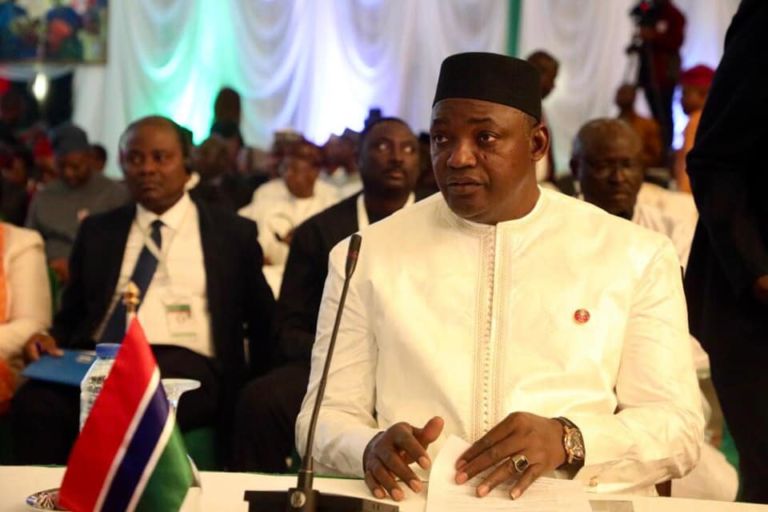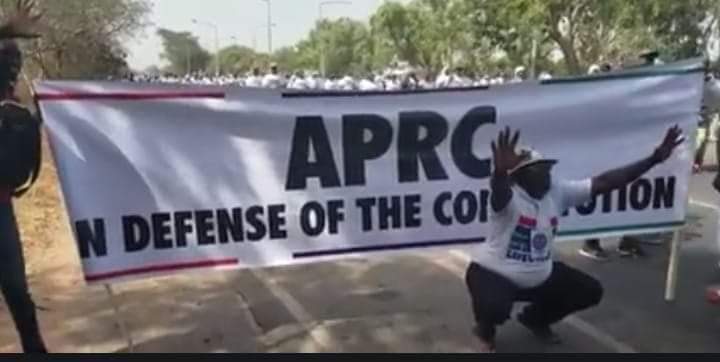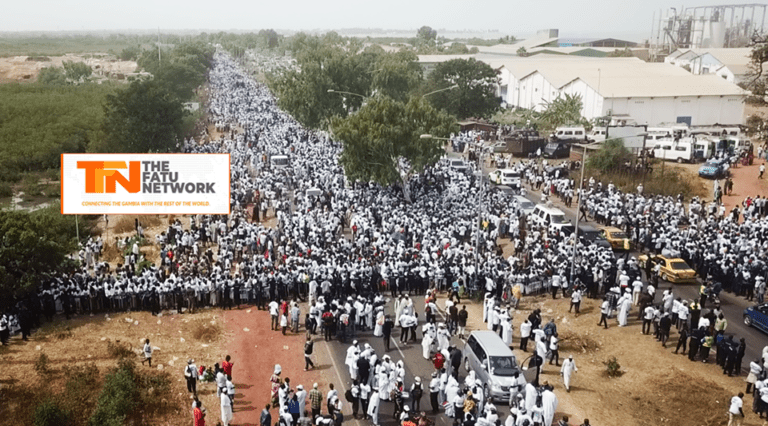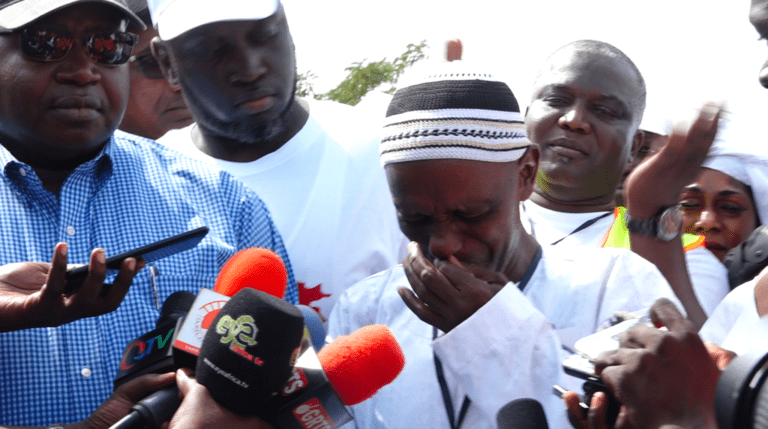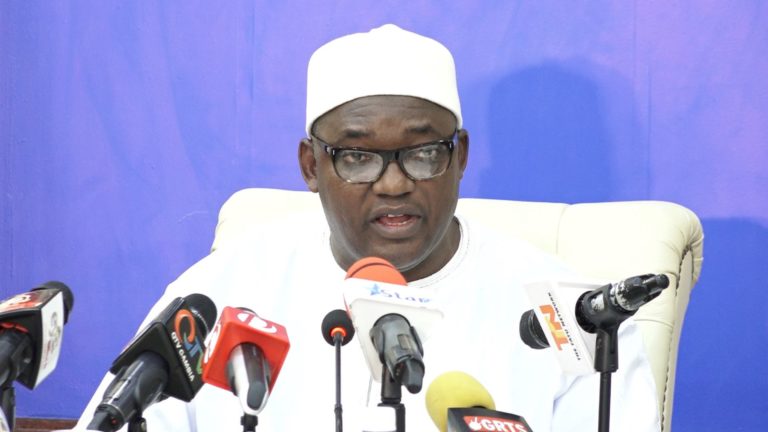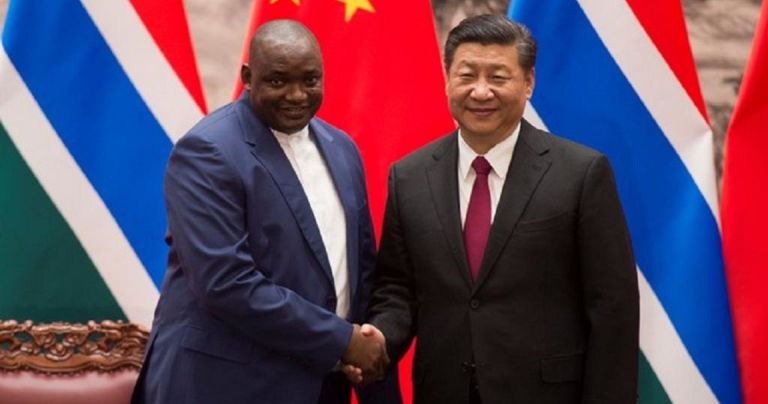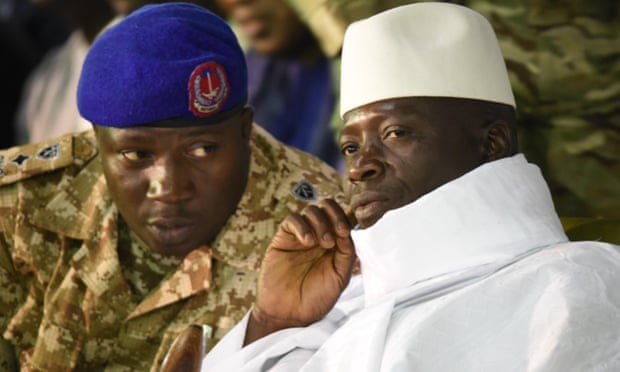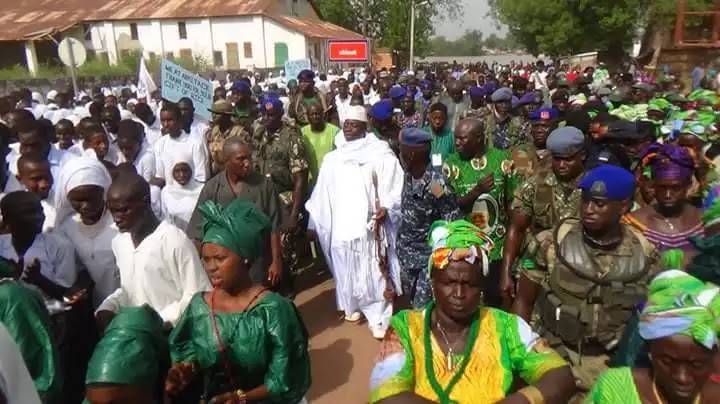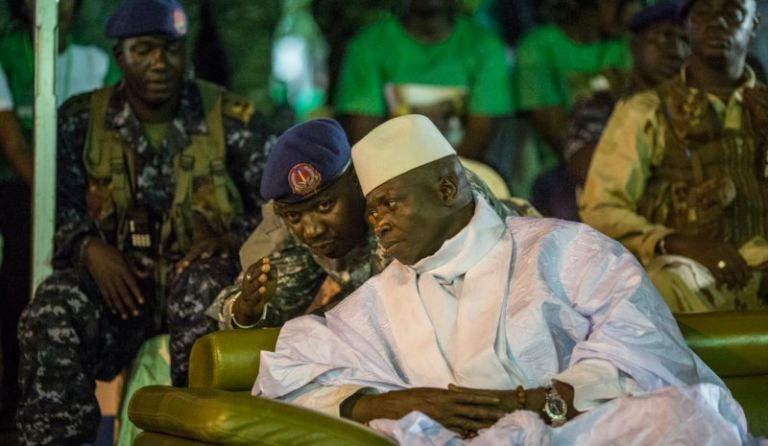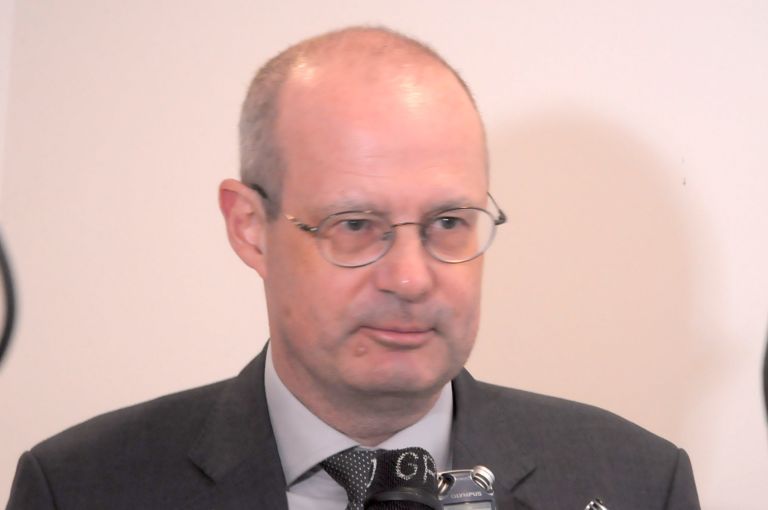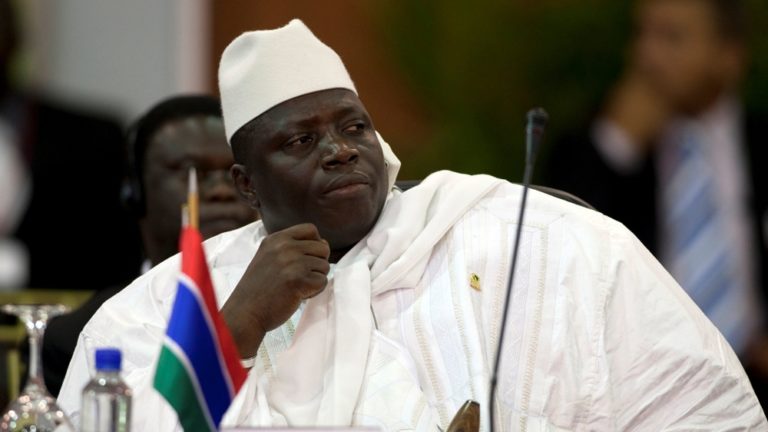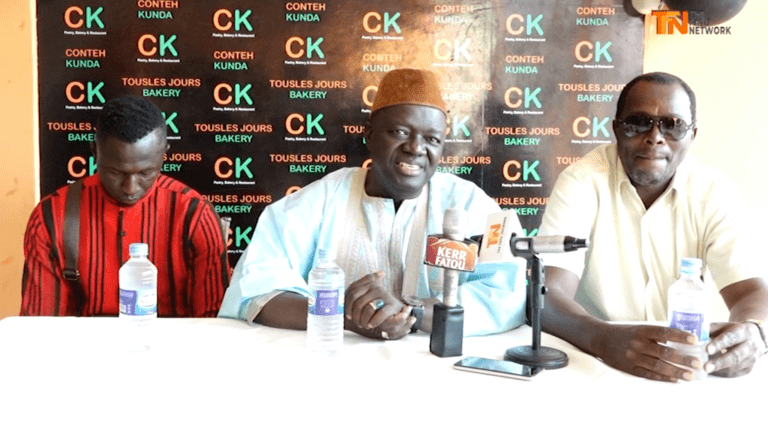Every human being who leaves home for even a few days indeed does get homesick and miss family. That is normal for any normal human being even Yaya Jammeh. Hence the infantile conversation between Yaya Jammeh and his stooges at home is not about him being homesick. That is not the issue.
The issue is that this unintelligible and self-conceited conversation exposes once again the mind of a dictator. The mind of a dictator is one steeped on delusion, false sense of invincibility, self-righteousness and deception. What Yaya Jammeh said in that conversation is nothing new and different from what he has been saying over the 22 years of his misrule: bunch of lies, hypocrisy, violence and dishonesty.
If Hitler is to speak today, he will speak of how great he was for Germany. If Saddam Hussain is to speak today, he will beat his chest that he developed Iraq. If you interview Pol Pot today, he will celebrate his tyranny as the best rule for Cambodia. It will be same narrative if you talk to Campoare of Burkina Faso or Mobutu of Zaire (now DRCongo), etc. They are all mad men! Yet they all have supporters in their countries until today just like we have APRC today!
In the first place it must be clear to all that Yaya Jammeh does not believe in Allah which is his right anyway. But knowing that he was engaged in serious anti-Islamic activities such as mobilizing half-naked women to wrestle and dance before him it begs the question why is he pretending to be an imam today? Apart from his acts of sexual harassment of girls and women, Yaya Jammeh was a champion of profanity. I am sure Gambians including his APRC folks cannot forget how Yaya Jammeh would tell our women that they could bleach all of their body except the ‘front part’. Which Allah-fearing and self-respecting and decent leader would tell such things to his people?
Both the Janneh Commission and the TRRC have exposed in no uncertain terms that Yaya Jammeh was the personification of corruption and violence. Corruption and torture are not Islamic at all. Hence when Yaya Jammeh talks about Allah it only exposes his level of delusion and dishonesty. Who dare deny the existence of Junglers or the transfers of millions of dalasi from Central Bank? How could such a group exist or such transactions take place without the expressed consent of the head of state?
The so-called agreement he laments about is also another indication of the delusion of Yaya Jammeh. Either out of ignorance or dishonesty or both, Yaya Jammeh should have known that the 21st January 2017 agreement between the UN, AU and ECOWAS was only a DECLARATION between only these three organizations. It was a commitment among themselves to support the Gambia and not any agreement that has any force of law on anyone including those three entities. A declaration in international relations is only an expression of intent for which parties to that declaration rely on goodwill and good faith to fulfill the declaration. Period.
To make the point that Gambians are in a more dire situation today because of his absence is the height of foolhardiness. If the call that Yaya Jammeh made to his stooges was rather made by any political leader during his time, there was no doubt that his Junglers would have arrested those who received that call. Therefore, the fact that Yaya Jammeh could be calling Rambo, Fabakary and Yankuba Colley yet there has not been any arrest indicates that the Gambia is far better today than when he was in power.
Yes, I dare say majority of Gambians are disillusioned by the equally poor and corrupt leadership of Adama Barrow which is why Yaya Jammeh and APRC could even have the audacity to shout and jump however no sensible Gambian misses Yaya Jammeh and his APRC regime. Therefore, to engage in lies that even Senegalese were coming for healthcare in the Gambia is nothing other than delusion. Yaya Jammeh knows that his own family did not seek medical attention in public health facilities nor does his children go to public schools in the Gambia which was a clear indication of the poverty of services under his watch!
What this conversation therefore should tell Gambians is that Yaya Jammeh is still the remorseless, indecent, uncivilized and dishonest man who cares less about the Gambia. Today he is encouraging his stooges to demonstrate but Yaya Jammeh knows that under his watch he never allowed anyone to demonstrate against him unless one wishes to die. But today he talks about protest as a right. What a hypocrite! If anything Yaya Jammeh once again confirms that he is prepared to sacrifice the Gambia just to protect his selfish interests!
In all of his conversation he never talks about the Janneh Commission or the TRRC. He has never mentioned his victims because he lacks the courage and honesty to take responsibility for his actions. This is why he will never accept or deny anything nor will he ever apologize because he does not fear Allah and lacks courage. If indeed Yaya Jammeh is brave as he claims let him come before the TRRC to testify. Let him go to Ghana to respond to the 44 Ghanaians his henchmen butchered in 2005. Let him demonstrate that he does not only speak about Allah but he believes in Allah in practice.
APRC and all Gambians must understand that Yaya Jammeh stands to be prosecuted if he steps his dirty feet in the Gambia. Hence I urge the Gambia Government to let Yaya Jammeh return home even though the Government is not the one refusing him to return. Yaya Jammeh has a right to return anytime, death or alive. He and his APRC stooges may be thinking that he cannot return because Yaya Jammeh had exiled and refused uncountable Gambians to return home even when they died! No, Yaya Jammeh has a right to return home and no one has authority to stop that.
Therefore, if Yaya Jammeh and APRC are brave enough let them kindly and quickly bring back Yaya Jammeh. I have no doubts that the Government of Adama Barrow will not fail the nation this time by refusing to arrest and prosecute Yaya which will be in line with international law and international human rights law. Accountability is an indispensable element in governance and development. Accountability is the heart of the human rights and justice delivery system. Hence Yaya Jammeh will face accountability anytime he steps on the soil of the Gambia!
For The Gambia Our Mama Land!
…………………………………………….
Madi Jobarteh
Skype: madi.jobarteh
Twitter: @jobartehmadi
LinkedIn: Madi Jobarteh
Phone: +220 9995093

